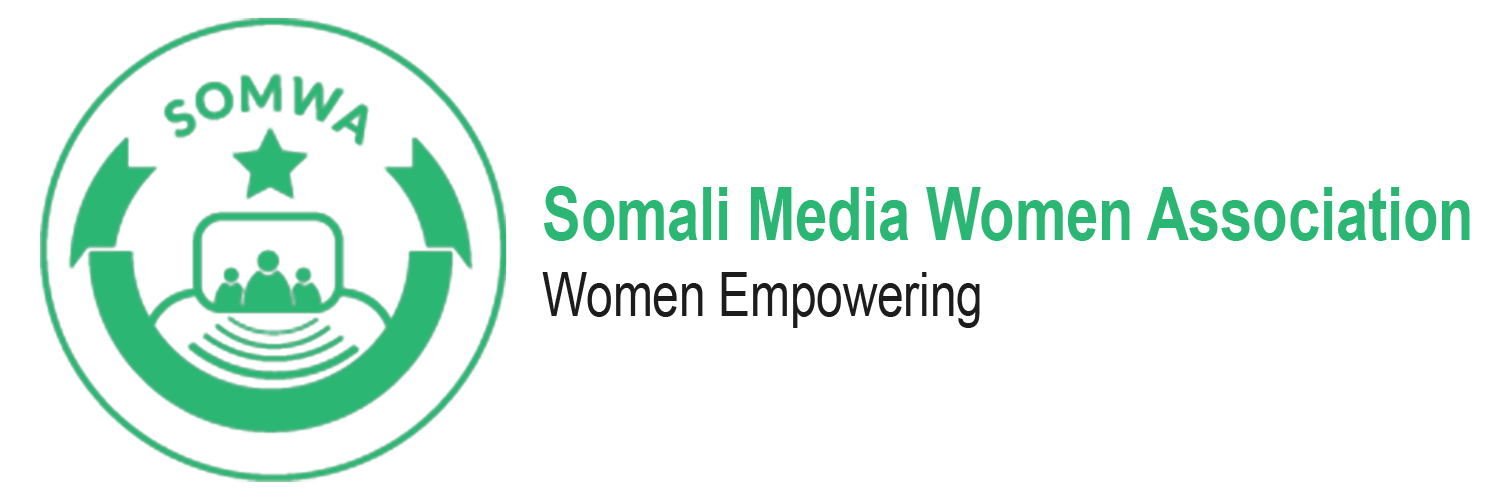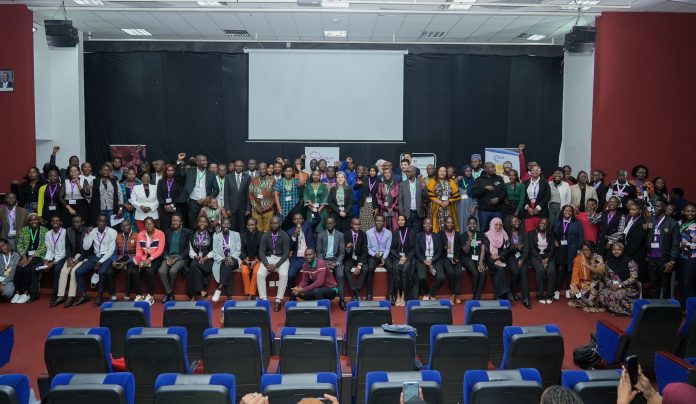Nairobi, Kenya – March 28, 2025 – The Global Democracy Coalition (GDC) Africa Regional Forum 2025 convened at Daystar University, bringing together key stakeholders to address pressing governance challenges at the intersection of democracy, human rights, and environmental justice.
Organised by the Youth Café in collaboration with the Somali Media Women Association (SOMWA), Committee Action for Health and Development (CAHED), Citizen Voice and Action (CVA), and Afrobarometer, the forum focused on advancing democratic resilience while combating corruption as a catalyst for both democratic renewal and environmental sustainability.
Under the theme, “Advancing Democratic Resilience at the Intersection of Human Rights and Environmental Justice,” the forum provided a platform for critical discussions on corruption, electoral integrity, youth engagement, and climate governance. The discussions emphasised the need to fight corruption as a key part of improving democracy and protecting the environment, pointing out problems in how the government works, obstacles for young people getting involved, and how campaign financing helps keep political corruption going.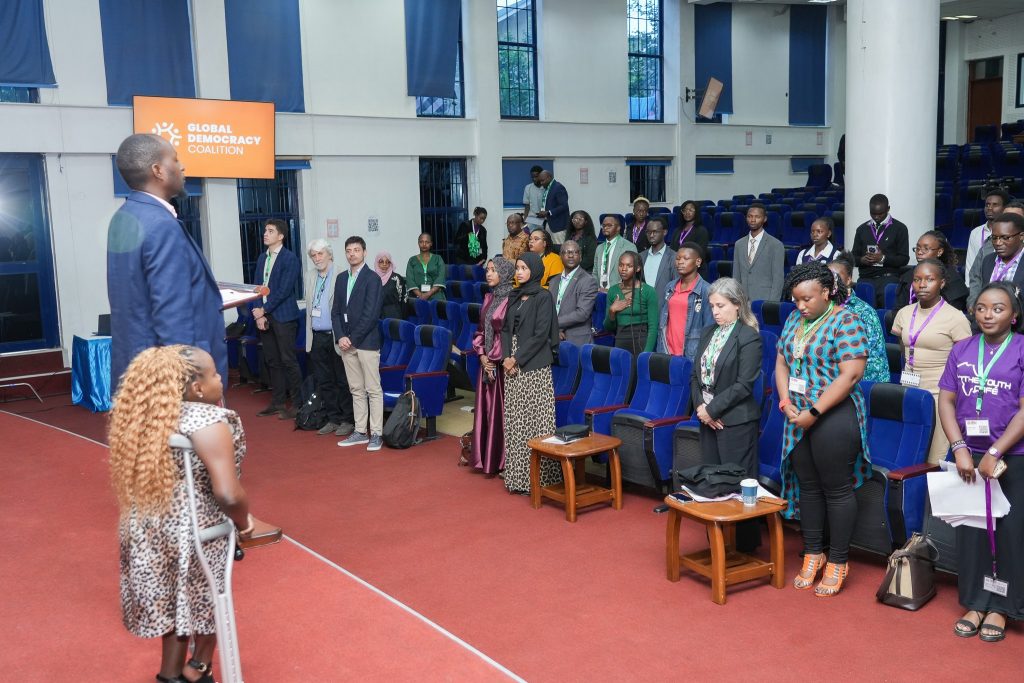
The 1-day forum was designed to be a hybrid event, offering in-person and virtual participation options. The physical event was hosted at Daystar University, Nairobi, Kenya, providing an opportunity for direct engagement and collaboration. The hybrid format enabled the inclusion of a broader audience, reaching participants regionally.
The forum began with welcome remarks from the partners, emphasising the urgent need to address corruption, youth exclusion, and environmental injustices in Africa’s governance landscape. Keynote speakers provided insights on strengthening democratic institutions, advancing human rights, and promoting environmental justice, setting the tone for the discussions ahead.
Maxmillian Ochango Ambeba, Senior Programs Officer who delivered the welcome speech, highlighted Africa’s current political landscape, referencing youth-led protests for accountability, civic movements demanding reforms, and resistance to authoritarian backsliding.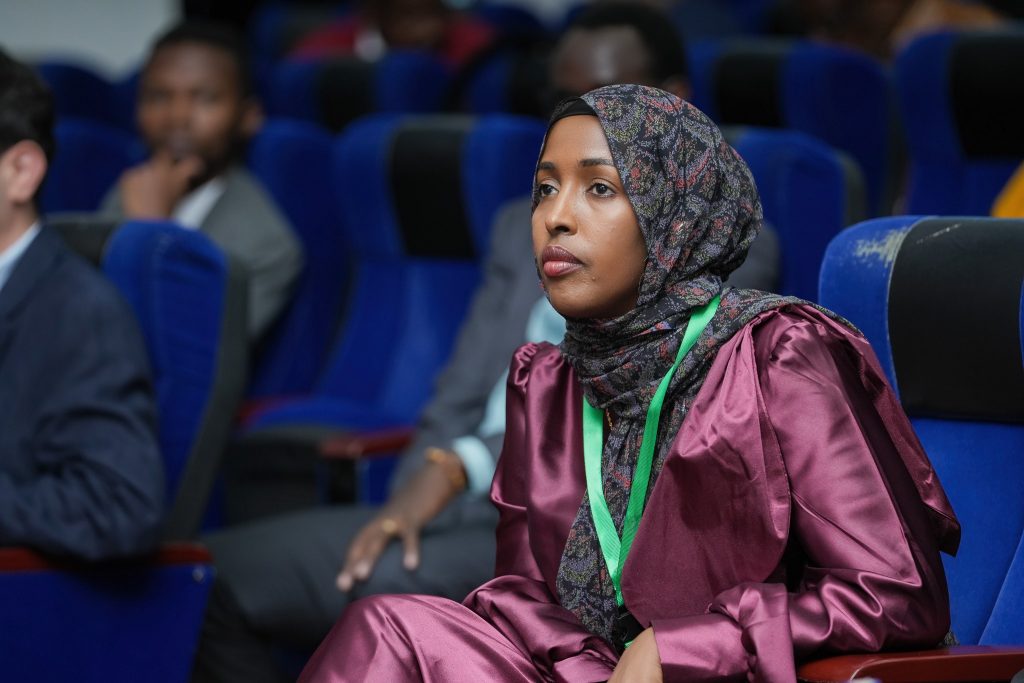
Elisenda, representing the Global Democracy Coalition (GDC), delivered a compelling keynote speech on the critical need for sustainable funding for democracy and human rights. She acknowledged the dedication of democracy defenders and commended the efforts of the organisers, expressing a hope that every participant would leave the forum with renewed determination to strengthen and advance democratic values.
The first high-level panel discussion examined how corruption undermines democracy and weakens environmental resilience. Speakers highlighted the links between governance failures, climate inaction, and human rights violations, calling for stronger accountability mechanisms. Discussions focused on enhancing climate justice through transparent governance, reducing political corruption, and amplifying the role of civil society and youth in advocating for accountability.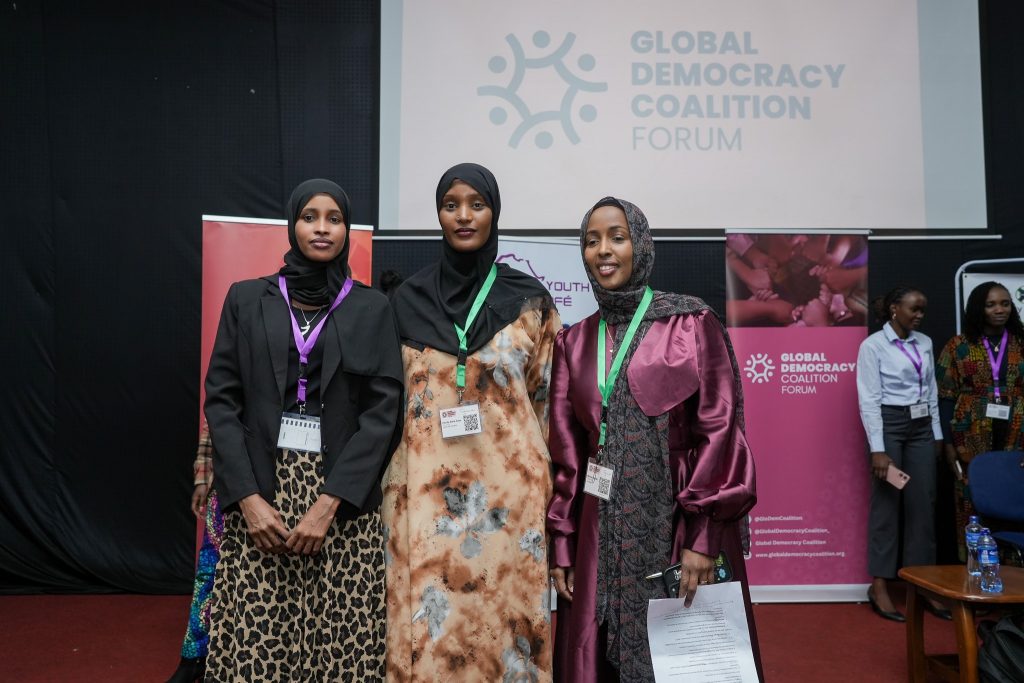
An interactive World Café session allowed participants to engage in group discussions, each moderated by experts. Topics explored included strengthening democratic institutions, advancing environmental justice, and increasing youth participation in governance. Participants shared best practices, identified key challenges, and proposed actionable solutions. Each group later synthesised their takeaways and presented them in the plenary session.
The second panel focused on corruption as a major obstacle to democratic progress, with a special emphasis on campaign financing as a driver of political corruption. Discussions addressed the role of anti-corruption agencies, legal reforms, and electoral transparency in curbing financial misconduct in politics. Participants also explored strategies for ensuring fair electoral processes, strengthening accountability in government spending, and promoting ethical leadership.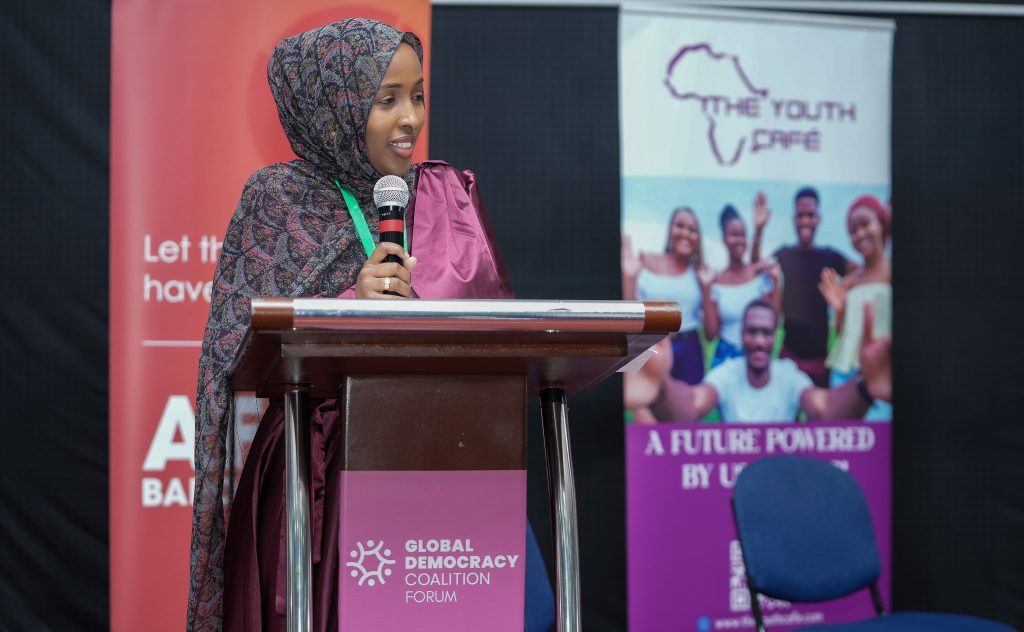
A global panel discussion tackled the structural and systemic challenges preventing youth from engaging in political and governance processes. Key barriers highlighted included electoral injustices, political violence, misinformation, lack of civic education, and restrictive legal frameworks. The session underscored the need for bold youth advocacy, digital mobilisation, and targeted policy reforms to create an environment that encourages young people to participate meaningfully in governance.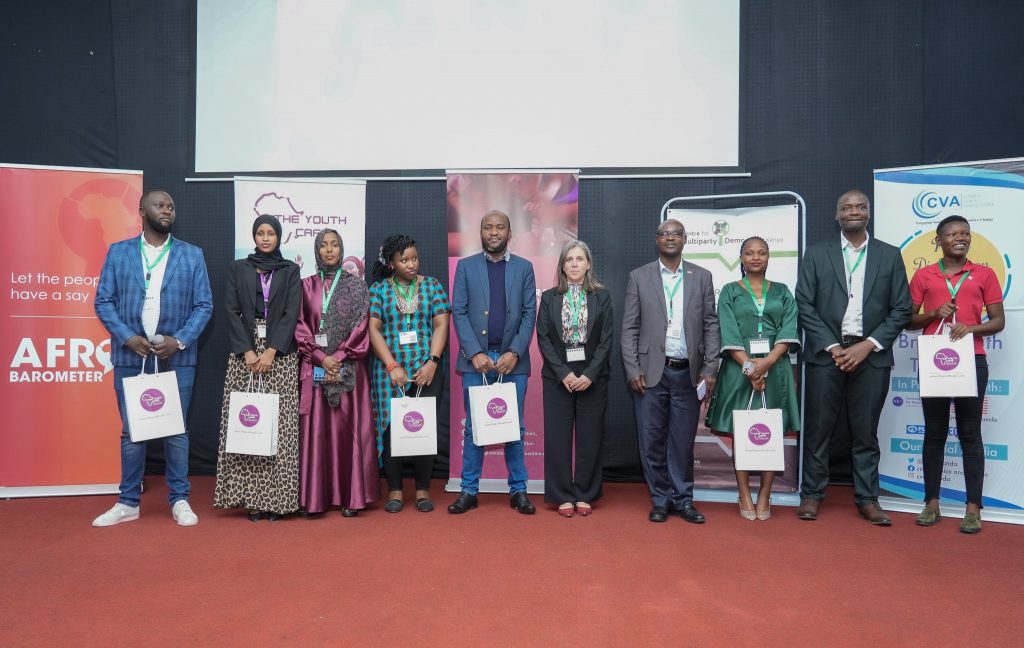
IMPACT AND KEY OUTCOMES
The GDC Forum generated critical insights and actionable commitments to strengthen democratic resilience.
Key outcomes:
- Strengthened Multi-Stakeholder Collaboration: Enhanced partnerships between civil society, governments, and youth-led movements to address democratic backsliding.
- Digital Resilience and Electoral Integrity: Recognition of the need for stronger digital safeguards to combat misinformation and electoral manipulation.
- Youth Leadership and Political Inclusion —Institutional support for youth participation, civic education, and political literacy to drive democratic renewal.
- Human Rights and Civic Space Protection – Enhanced legal frameworks and enforcement mechanisms to safeguard fundamental freedoms and democratic rights.
- Environmental Governance and Climate Justice – Prioritisation of transparency, equity, and public participation in environmental policymaking and climate action.
- Digital innovation for democracy: leveraging technology to combat misinformation, enhance political transparency, and amplify citizen engagement.
CALL TO ACTION
To maintain the momentum from the forum, stakeholders must make the following commitments:
- Institutionalise Reforms— Governments must implement policies that strengthen democratic institutions, curb corruption, and protect civic space.
- Enhance digital security: stakeholders must invest in digital resilience programs to counter cyber threats, misinformation, and electoral manipulation.
- Ensure Electoral Transparency — Electoral bodies must enforce campaign finance regulations and eliminate barriers to inclusive political participation.
- Strengthen Oversight and Accountability: We need to empower anti-corruption agencies and judicial bodies to enforce governance integrity.
- Support youth leadership—governments, civil society, and international partners must provide funding and platforms for young leaders to drive democratic innovation.
- Advance Climate Governance – Governments must integrate environmental justice into democratic policies, ensuring equitable climate action and resource management.
CONCLUSION
The Global Democracy Coalition Africa Forum 2025 The GDC Forum reinforced the urgent need for decisive action in defending democracy, combating corruption, and integrating climate justice into governance frameworks. Sustainable change requires a unified commitment from governments, civil society, and citizens to uphold accountability, protect human rights, and foster inclusive, transparent, and resilient democratic institutions. The time to act is now.
